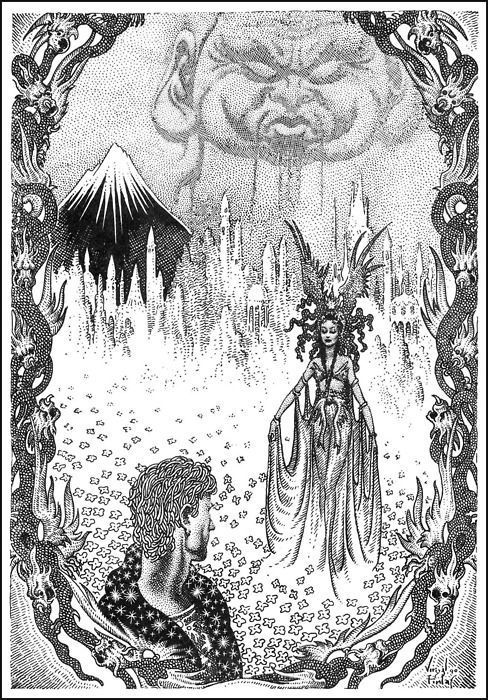RETROSPECTIVE: “Through the Dragon Glass” by A. Merritt
Monday , 22, February 2016 Appendix N, Before the Big Three 2 Comments When I read The Moon Pool, Creep, Shadow, Creep!, and Dwellers in the Mirage last year, I noted such a difference between his first novel and his later ones that I mistakenly assumed that A. Merritt’s writing must have improved drastically over the course of the 1920’s. I could not have been more wrong.
When I read The Moon Pool, Creep, Shadow, Creep!, and Dwellers in the Mirage last year, I noted such a difference between his first novel and his later ones that I mistakenly assumed that A. Merritt’s writing must have improved drastically over the course of the 1920’s. I could not have been more wrong.
Everything I loved about his books from the 1930’s is right here in his first published short story from 1917. It opens with China’s Forbidden City being looted by the Allies. The titular artifact is introduced as being connected to ancient legend. When it is used to travel to a otherworldly place, the protagonist quickly encounters a mysterious and beautiful woman. They even eat from the Tree of Life from Genesis 2. Taken together it’s a striking blend of adventure, myth, romance, and Christian lore that concisely summarizes everything that is great about the weird fiction of the early twentieth century.
Not everyone would agree with that, of course. The entry on A. Merritt in The Encyclopedia of Science Fiction says that “by any absolute literary standard, Merritt’s prose was verbose and sentimental.” I can’t tell if they authors of that statement are profoundly blinkered or merely being niggardly, but clearly there is a mismatch between their exceptions and reality. Steeped in a view of the field molded entirely by later giants like Asimov, Heinlein, and Clarke, they look back at someone like A. Merritt and leap to the conclusion of too much. You can make a case for that, sure. But you can just as soon argue that there’s a problem with the later stuff being too little.
The thing is, when you’re writing a blend of science fiction and the fantastic– which is what a great deal of the older “weird” stories are, really– then A. Merritt’s lush prose is not out of step at all. It’s an asset. And maybe where these guys see “sentimentality”, what they mean to say is humanity– real human beings and human passions is a context where myths are true. When science fiction began to distance itself from this sort of thing, I guess it did get a reputation for being serious and respectable. Some good tales got told, no doubt. But did the genre really have to become so anemic in the process?
[…] again. It is very much like how I have (on many occasions) attempted to describe the best work of A. Merritt, H. P. Lovecraft, Robert E. Howard, and Leigh Brackett to a generation that is almost entirely […]
This was an awesome story. I enjoy Merrit’s works a lot, a favourites are his urban horror tales like Seven footsteps to Satan and Burn Witch Burn